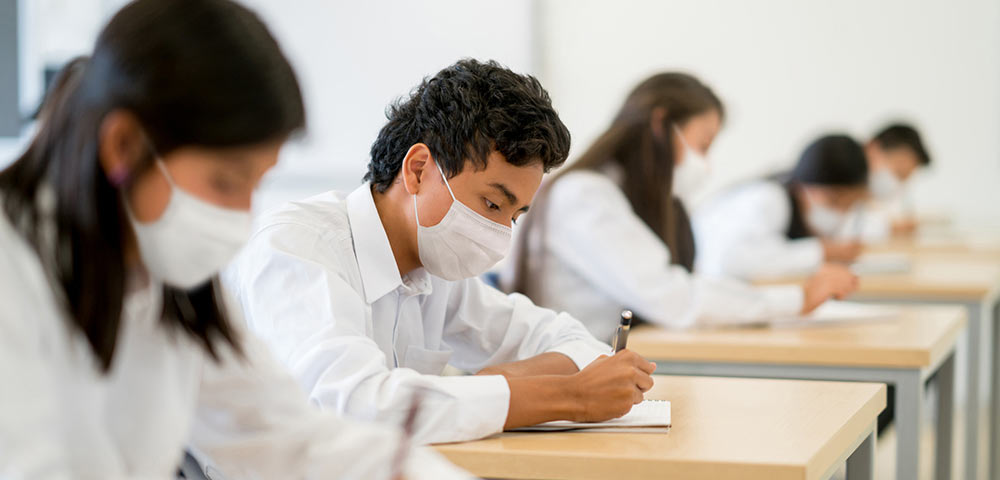By Filio Constantinou & Matthew Carroll, Research Division, Cambridge University Press & Assessment
There is no doubt that the pandemic has caused major disruption to education, both in the UK and in the rest of the world. School closures during lockdowns and the social-distancing measures that were implemented in schools after the lifting of lockdowns, have affected teaching and learning in various ways.
School closures reduced the amount of teaching (especially in the initial phase of the pandemic) and resulted in remote teaching replacing normal face-to-face teaching. The social-distancing measures, on the other hand, altered the nature of face-to-face interactions at school, and even required some students to self-isolate and continue their learning from home while others remained in school.
This unprecedented situation has led to questions – and, indeed, concerns – about the impacts on students, teachers and schools.
Understanding the impact
Researchers around the world have started to investigate the diverse impacts of the pandemic on education systems and the people involved. CEM – along with the wider Cambridge University Press & Assessment family – works closely with teachers and schools, so also has an interest in understanding these impacts.
This is why, in 2021, CEM and the Cambridge University Press & Assessment Research Division commenced a programme of research into the effects of the pandemic on the schools we work with.
We are in a strong position to contribute to the conversation about the effects of the pandemic on education. We work with schools around the world rather than in just one country. Further, CEM produces assessments for children just starting school, right through to young adults taking higher secondary qualifications. By working with this diverse group of schools – and by involving teachers themselves in the research – we can gain an unusually broad perspective.
Our research
In spring of 2021, we sent a teacher survey to schools that work with CEM. We received a fantastic response, with responses from around 200 schools spread across 38 countries. The respondents taught a range of subjects, from humanities and social sciences through to sciences and maths, and a range of ages, from 4-year-olds to 18-year-olds.
The broad survey was followed up by more detailed interviews with a smaller number of teachers. This provided us with a much deeper understanding of the experiences and allowed further exploration of key themes.
Across the research, we have looked at a wide range of issues, including learning loss, student engagement, student wellbeing, parental support, teacher wellbeing, teaching practices during remote and face-to-face lessons, and measures taken by schools to mitigate the impact of the pandemic on students’ attainment and wellbeing.
We have also asked teachers about their personal experiences of teaching in such challenging times: what worked or did not work for them. We believe that this approach will provide an understanding of the impacts of the pandemic that is broad but detailed, and which puts teachers’ experiences front and centre.
The analysis of the data is nearly complete and we look forward to sharing our findings with you over the coming months. We hope that our findings will shed further light on the impact of the pandemic on schools, and also inform the development of strategies for supporting students and teachers during these challenging times.
By working closely with teachers and schools, and by building a solid evidence base, we can start to answer some of the questions posed by the pandemic.


